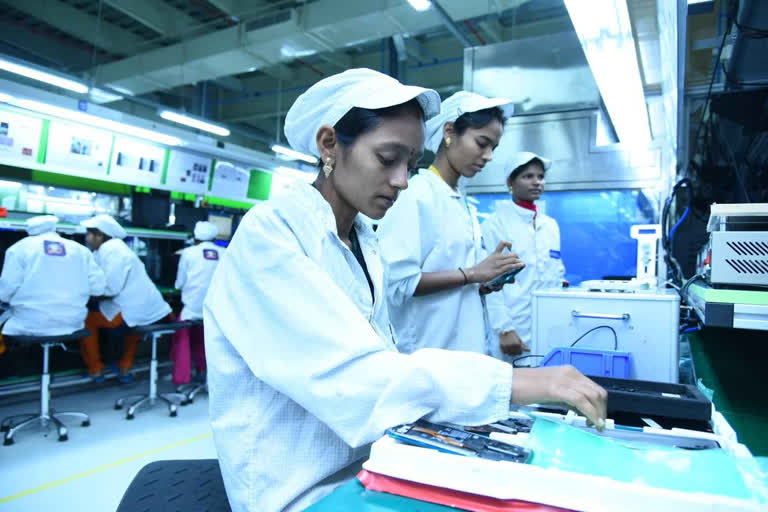Hyderabad: Last week, a number of states sought to amend various labour laws in the country in a bid to recover from the economic impact of the COVID-19 pandemic. Madhya Pradesh took the lead by announcing some relaxations in labour laws in order to keep our almost comatose industry afloat. Uttar Pradesh, Punjab, Rajasthan, Gujarat, Haryana, Maharashtra and Kerala soon followed suit with varying degrees of measures to help the industries contain the downhill run. The governments of Orissa, Goa, and Karnataka are also contemplating some relaxations.
These measures included increasing the working hours, hiking the overtime limit, doing away with bureaucratic hurdles of inspections and increasing the benchmark membership in a factory to recognise a trade union for periods varying from three months to one year.
However, Uttar Pradesh took a much bolder step by suspending all but three labour laws for 1000 days. The three laws that have escaped the suspension are the Building and Construction Act, Bonded Labour Act and section five of Payment of Wages Act.
Kerala, in a cautious move to attract investments, declared that it will grant licence for a new industry in a week's time if the investor agrees to complete the formalities in one year though, understandably, it has not proposed any change in labour laws.
But one may ask why our states have now woken up to these amendments. Two reasons can be cited for this.
Firstly, the huge inter-state migration of labour has created a vacuum in the more industrialised states like Maharashtra and Gujarat. The various economic packages announced by the central government to give a boost to the ailing industry may prove useless if the very first and foremost requirement i.e. adequate work force is not met.
Read:Industrial firms to be permitted to function in staggered business hours: Delhi government order
After the huge exodus of migrant labour whose return to their unit is doubtful, the factories will have to restart with whatever workforce is left. Employing labour for greater hours of the day will mean sustainable production which will not only help industry and economy to revive but would also instil confidence in migrated workers to come back.
Secondly, with many companies, currently based in China, planning to move their production units elsewhere, these pro-employer measures may incentivise these manufacturing units to shift to India. US giant Apple has already announced shifting of 25 per cent of its Chinese operations to India. It is reported that around 1000 US companies based in China are in serious discussions with Indian authorities to move their businesses to India.
The Indian government also, it is believed, is targeting the companies to move their setups in the sectors of automobile, electronics, hardware, pharmaceuticals including medical devices leather, food processing and heavy engineering to India.
Sensing the opportunity, the government has already earmarked 4,61,589 hectares ( 461 sq. KMs) for such foreign investors. This will also provide gainful employment to the Indians returning from the Gulf. Gujarat, Karnataka, UP, Maharashtra, and Kerala are already gearing up for this opportunity. Japan, which has heavily invested in Gujarat, and South Korea are also on a look out for better options in India.
Read:Resumption of public transport, more shops allowed to open in Chandigarh
Labour being a subject of the concurrent list of the Constitution, any law enacted by a state government on the subject can be null and void if it contravenes the law made by the Centre. That is why many states have carried out these amendments through ordinances. Moreover, it seems that Yogi Adityanath and Shivraj Chauhan, the two BJP CMs of north India, have already taken the PM into confidence before the ordinances in order to avoid any clash. The fact that the Parliament and the state legislatures are not in session, also gives the governments the advantage of sailing through for a reasonable time without any obstacle.
But the obstacles are still there. Interestingly, the first workers' body to oppose the move was none other than the Bharatiya Mazdoor Sangh, affiliated to BJP. Some other trade unions have also raised their voices against the move. They term these measures as "anti worker" and against the spirit of democracy. Some states have raised the threshold at which a union can be recognised which will certainly hurt the interests of the workers' bodies.
Read:E-commerce firms welcome government's move to allow services in lockdown 4.0
The new regulations may also be challenged in court for violating the Code of Wages passed by the Parliament only last year. However, the fact that even the state governments led by the opposition do feel the necessity of amendments albeit in varying degrees may mitigate a vehement opposition of the move.
One valid objection is about the duration for which these amendments will be in force which varies from state to state. Haryana has proposed a three months' period to begin with, UP has suspended the laws for 1000 days. While three months is a period too little to gauge the industrial revival, three years or more seems to be on the other extreme.
This is the time the governments should clarify their intentions to the workers and convince them that the new measures are not detrimental to their interests.
